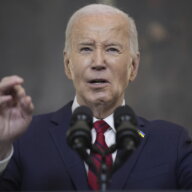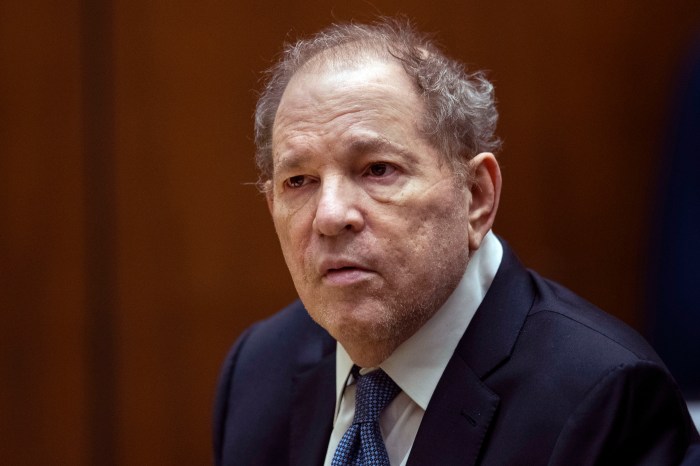The Philadelphia chapter of the Council on American-Islamic Relations,
America’s largest Muslim civil liberties and advocacy organization,
announced yesterday that it has filed a discrimination suit against
Whole Foods Market for allegedly creating such a hostile work
environment for a former Muslim employee at its Philadelphia Art Museum area location that he was forced to pray
outside the building by the dumpsters.
“In 2010, Whole Foods became the first national supermarket chain to
have a ‘Ramadan Promotion’ targeting Muslim customers,”
CAIR-Philadelphia Civil Rights Director and staff attorney Amara
Chaudhry said in a statement. “A company that works so hard to attract
Muslim customers should be similarly welcoming of Muslim employees, and
we are willing to hold them accountable for the representations they
made to our community.”
The suit, filed in Philadelphia’s Court of Common Pleas last week,
alleges that when former Whole Foods employee Glenn Mack Jr.’s supervisor learned of Mack’s
Islamic religious beliefs in October 2010, Mack was subject to a hostile work environment that eventually led to his termination.
According to the complaint, supervisor Sara Perlstein, one of two Whole Foods
managers named in the suit, “pestered” Mack for details of an 18-day
vacation he was taking in the fall of 2010 that was in line with Whole Food’s policy and had
already been approved.
The day after a co-worker revealed to Perlstein that Mack was using his
vacation time to take a religious pilgrimage to Mecca in Saudi Arabia,
Perlstein allegedly called Mack into her office and told him that he
couldn’t go due to an “informal black out policy” prohibiting employees
from using vacation days in November and December. Mack said it was the
first he heard about the rule.
In addition, the suit claims that Perlstein told
Mack during the same meeting that she “couldn’t guarantee” his job when he came back and said when he returned, he would be placed on an on-call, temporary “seasonal
status” without benefits.
After Mack returned from his pilgrimage, he went to the second Whole
Foods employee named in the suit, Jamie McFadden of the company’s Human
Relations Department, asked why he had been placed on seasonal status
and said he believed he was being mistreated because he had gone to
Mecca, according to the complaint.
Human Resources claimed that it returned Mack to full-time employment, but Mack says he never received his benefits.
Mack said that his work environment then became hostile.
Perlstein and other co-workers allegedly followed Mack to a storage area
during his scheduled breaks, where they would “heckle” him as
he prayed. As a result, he began praying by the dumpsters
outside the supermarket.
Perlstein allegedly called Mack in February 2011 and told him he was
fired for attendance reasons, but the suit claims his termination was
actually due to religious discrimination. He soon learned he was banned by Whole Foods corporate offices from working at any Whole Food location, according to the complaint.
In mid-2011, Mack was contacted by two Whole Foods locations in Wynnewood and Devon that were interested in hiring him, as Whole Foods has an internal policy that all employees fired for attendance reasons are eligible for re-hire six months later.
Mack was twice interviewed at the Wynnewood location and received a phone call offering him a position set to start in early November. But the day before he was scheduled to begin, Mack got another phone call from the store notifying him that corporate headquarters had indicated he was “banned” from all Whole Foods positions in all locations, the complaint alleges.
A similar thing happened with the Devon Whole Foods location, according to the suit. After the store manager told Mack “an interview would be a formality” and that he “just needed to check with corporate” before giving Mack a start date, Mack was again notified by telephone that he was ineligible for re-hire at any Whole Foods store.
Mack is suing for alleged religious discrimination, retaliation and intentional infliction of emotional distress. He is seeking compensation for pay and benefits he would have received
had he not been terminated, damages for emotional distress and pain
and suffering and punitive damages for Whole Food’s “willful, deliberate, malicious and outrageous conduct.” The suit also seeks to prohibit Whole Foods from maintaining its alleged illegal policy or practice of religious discrimination in the future.
“Employers need to be tolerant of the religious beliefs of their
employees,” attorney Richard Swartz said in a statement. “In this lawsuit, Mr. Mack alleges that Whole Foods was not,
and that Whole Foods retaliated against him when he complained about the
intolerance.”





























